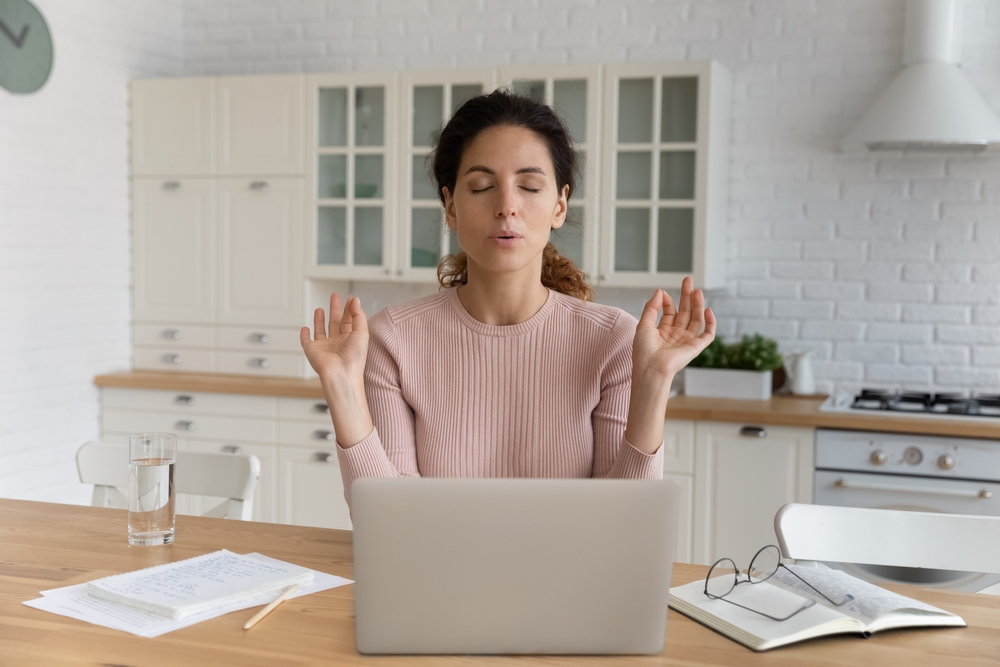
Most people will experience some anxiety at one point in their lives, so let’s talk about it.
Anxiety is the outcome of a dysregulated state, usually due to small or big trauma. Anxiety can come from everyday stressors, dating, relationships, childhood trauma, work etc; it is very common. So that’s the first thing I want you to know. You are not alone. Anxiety usually means you are in a fight/flight state, preparing for “danger.” Meaning, your nervous system detects danger. Now, it doesn’t have to be logical. But trust me, at one point in your life (maybe before you can even remember) that experience or a similar one was scary to you and your nervous system. Keep in mind, some anxieties are not even ours. They can be passed down through generations. We hear stories, we witness others’ distress and we can internalize all that and make it our own. So, you realize that you have been experiencing anxiety, what can you do about it?

What To Do?
Experiencing anxiety can feel overwhelming, but there are techniques you can practice that can make managing your anxiety easier. Practice and consistency are essential when it comes to combating your anxiety. The more you practice these techniques, the quicker you will find yourself coming back down to a relaxed state.
- Breathe: When it’s hard to put one foot in front of the other, when things aren’t going well and life gets tough, remind yourself you don’t have to solve all your problems right then and there. Whether it be due to conflict in relationships, minor everyday irritations, or completely overwhelming emotions, take it one day at a time. For today, perhaps you only need to breathe and take care of yourself.
- Practice Acceptance: Acceptance is seeing the pain and the joy, and welcoming both. Acceptance is a judgment free zone-the awareness of what is, simply because it is. There’s no light without the dark, there’s no joy without knowing what sorrow is. And guess what? You can experience both. At the same time. And that’s okay.
- Be Mindful: Being mindful means being present. Living in real life with your senses, and not in your thoughts. Sometimes we are physically here but our minds are not. We are trapped in the past or trying to control our future. Being aware of your present can help take stress away from thoughts of the past or the future. Mindfulness results in nervous system regulation, which is very important when trying to lessen anxiety symptoms.

- Have Compassion For Yourself: Compassion for yourself is going to be a must as you go on your healing journey. The self critical aspect of you will yell at you many times. It will whisper words of shame, self-hate, and despair. This too, is an attempt at self-protection. But what you will need is self-compassion, more than anything else.
- Seek Professional Help: If we never learned the tools growing up to manage overwhelming feelings and anxiety, we may need help in adulthood to learn how to bring ourselves down from fight or flight; and that’s okay! Reaching out for help from a professional can give you the tools and guidance you need to take back control of your mind.
- Move your Body: What does your body need? Sometimes we need movement-to get rid of nervous energy. Sometimes we need calmness- to center ourselves and quiet the mind. Do you need to run? Do jumping jacks? Dance? Do you need to do relaxing yoga? Stretch? Go on a walk and just breathe? The choice is yours.
For Information and Support
Seeking help is never easy, but you are not alone! One great way to learn how to manage anxiety is through Acceptance and Commitment Therapy (ACT). ACT helps you stay focused on the present moment and accept thoughts and feelings without judgment. It can be very beneficial to put your energy into healing instead of dwelling on negative emotions. At My Therapy Corner, we have therapists and coaches specializing in anxiety and ACT who can help you take back control of your mind and emotions. Contact us today to schedule a consultation.



